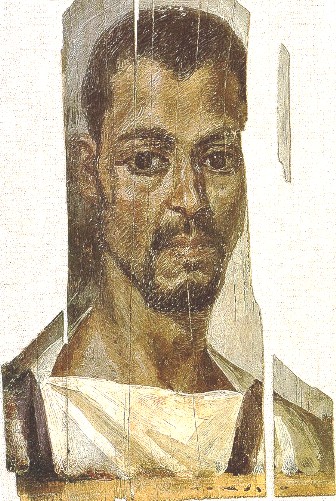The plot to kill Commodus succeeded, for soon he was dead. Pertinax
became the next emperor. Pertinax himself did not last very long, as he was
murdered himself shortly after assuming the throne.

After Pertinax was murdered, Didius Julianus bought the throne from the
praetorian guard. The hidden hand of the African grand master Laetus was soon
discovered and he was arrested, tried and summarily executed for his
involvement with the murder of Commodus. The palace continued its purge of
Laetus’ proteges, and appointees.
It was time for the African brotherhood of Rome to strike a death blow
against the the current regime. There was a haste to it as their grand master
had just been summarily executed and the executioner was coming for the rest of
them, eventually.
The three main people who had been placed in powerful positions by
Laetus all found it was time to act. The three were Severus, Pescennius Niger
and Clodius Albinus. The coup plot and the plotters were ready. However, their
interest and their ultimate aims differed.
Moorish Dread
Moorish Dread
The Coup d’etat succeeds and Severus proclaimed Emperor
Severus had himself proclaimed emperor by his troops at Carnuntum in
what is now Austria, in AD 193. He appeared to have the support of the Roman
senate in Rome, in doing so. Meanwhile, Pescennius Niger was hailed emperor by
his troops in the east. Clodius Albinus did not take such a drastic step. He
waited in the wings and bided his time.
But Septimus sensing the danger that Clodius posed, and the advantage
his cooperation would bring him, quickly neutralized Clodius Albinus, by
offering him the position of Ceasar (junior co-emperor). The offer was only
made with the intention of buying time for Severus.
Clodius Albinus was led to believe that he would be a co-emperor with
Severus albeit in a junior role, and that he would be Severus’ successor in the
event of death.
Clodius apparently accepted this offer leaving Severus free to make a
rapid advance on Rome. On hearing news of his approach against Rome with no
less than 16 legions under his command, all opposition against him within the
capital city simply crumbled.
As earlier observed, the Muurish circle within the Roman government had
senators as well as military men in its network working to advance the coup
d’tat. Recall that even Severus’ grandfather was a member of the Roman senate
and an elite in the Roman imperial circles. Thus, shortly before the arrival of
Severus army at Rome, the fifth columnist in this Muurish brotherhood arrested
Emperor Julianus. He was then tried and indeed sentenced to death by the
senate. He was thereafter executed in his deserted palace.
Once he arrived in Rome, Severus had all those involved in the murder of
Pertinax, and Laetus executed.
Severus also trebled the number of the city cohorts (the police of Rome)
and doubled the fire brigade (vigiles) in order to increase the city’s
security.
Severus disbanned the praetorian guard which had proved such a threat to
many emperors. Its members were banished from Rome. He replaced them with a
force double in size. This was a force of his own men drawn from his army
especially the famous Danubian legions made up of fierce Muurish horsemen.
As was the custom with new Emperors, and to raise morale in his army
(his institutional power base), he increased their pay from three hundred to
five hundred denarii a year.
War between two African Roman Emperors:

No comments:
Post a Comment